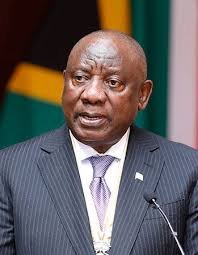
The case of Baba Danpullo, a prominent Cameroonian investor, has ignited controversy, casting doubt on South Africa’s commitment to justice and economic fairness. The actions taken by First National Bank (FNB) in collaboration with the South African justice system against Danpullo have been described as a disguised form of spoliation, contradicting the principles enshrined in the South African Constitution.
A Betrayal of Constitutional Values
The preamble to the South African Constitution sets forth noble aspirations, recognizing past injustices, honoring those who fought for freedom, and affirming that the nation belongs to all who live within its borders. However, the treatment of Baba Danpullo calls into question whether these values are truly upheld.
Danpullo, who took the bold step of investing heavily in South Africa long before Nelson Mandela’s presidency, played a crucial role in the country’s economic development. Converting billions of CFA francs into rands, he created jobs and supported infrastructure growth, demonstrating a belief in South Africa’s economic future. Yet, despite his contributions, he now finds himself targeted under the guise of a financial dispute that pales in comparison to the magnitude of his assets.
Unjust Dispossession
Danpullo’s supporters argue that his treatment reflects a betrayal of South Africa’s democratic principles. “This is nothing short of economic persecution,” said a legal expert familiar with the case. “A foreign investor who has done so much for South Africa is being stripped of his property under highly questionable circumstances.”
A business associate of Danpullo, speaking anonymously, voiced similar concerns: “If an investor like Baba Danpullo can be treated in such a manner, what message does this send to others who want to invest in South Africa?”
The dispossession of Danpullo’s properties contradicts the constitutional commitment to honor those who contribute to the nation’s development. It also raises alarms about the country’s adherence to fair economic practices and respect for foreign investments.
A Tarnished Legacy
Critics argue that the actions of President Cyril Ramaphosa’s administration stand in stark contrast to the ideals championed by Nelson Mandela. “Mandela fought for a just and inclusive South Africa,” remarked a political analyst. “What we see now is a government that disregards these values and engages in economic strong-arming.”
Further, legal scholars have pointed out that the treatment of Danpullo might violate international laws protecting foreign investors. “South Africa has international obligations regarding fair treatment of foreign investors,” a constitutional law expert stated. “Ignoring these principles could damage the country’s reputation on the global stage.”
South Africa at a Crossroads
The Danpullo case is not just about one individual but speaks to broader concerns about South Africa’s legal and economic landscape. Business groups have warned that such actions could deter investment, leading to negative economic repercussions. “If investors believe that their assets can be seized arbitrarily, they will think twice before bringing their money into South Africa,” a representative of an economic think tank observed.
Amid growing criticism, the South African government has remained largely silent. However, pressure is mounting for Ramaphosa’s administration to provide clarity on the legal basis for the actions against Danpullo. “If there is a legitimate case, let it be handled transparently,” urged a human rights activist. “But if this is a politically motivated attack, it must be condemned.”
The coming weeks will be crucial in determining whether South Africa remains true to the ideals enshrined in its Constitution or if it allows economic and judicial practices that undermine justice and fairness to take root.



